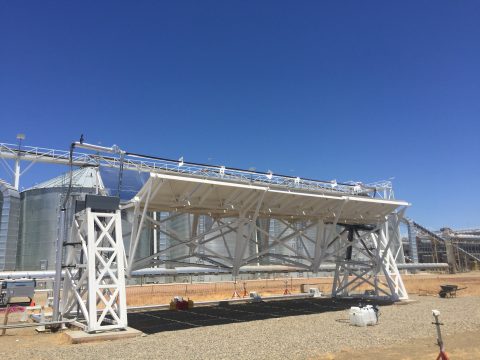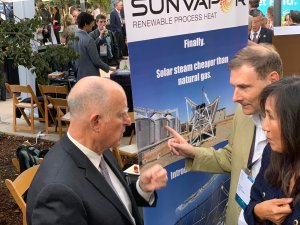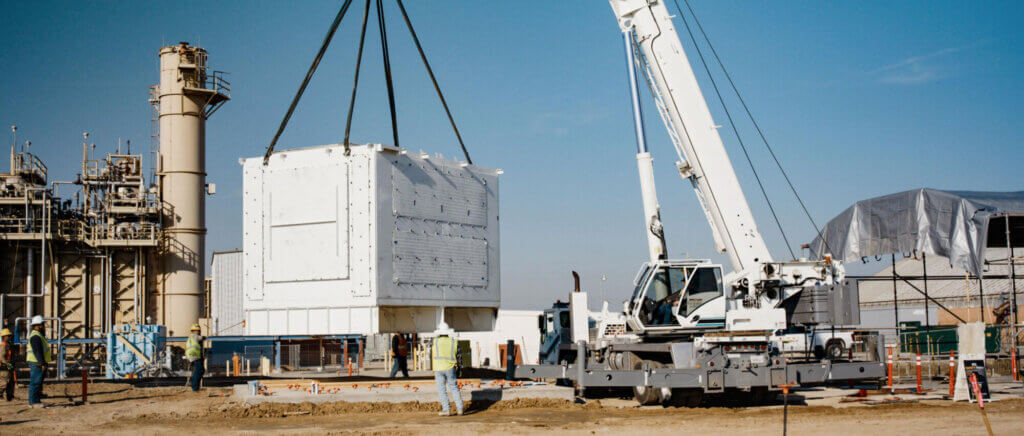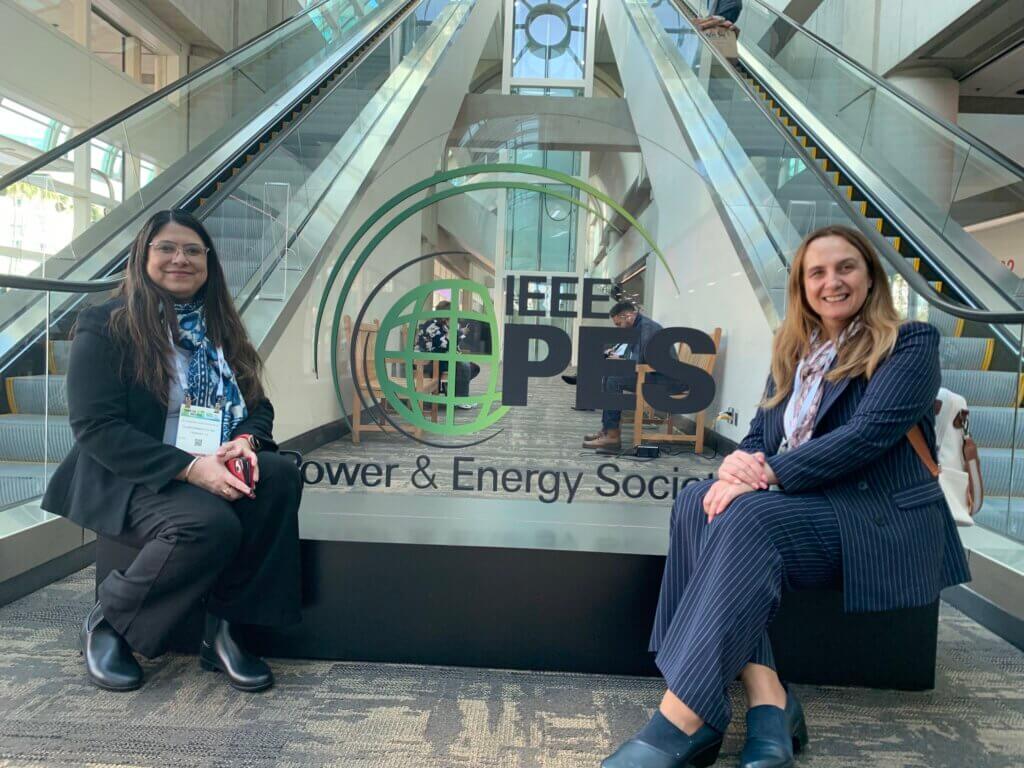
Move Over Natural Gas, Sunvapor Has a Solution
Today, Sunvapor’s low-cost solar thermal collector technology generates industrial process heat that is cost-competitive with natural gas and produces virtually zero carbon emissions.
Dr. Philip Gleckman founded the company Sunvapor with a view to develop commercial projects that provide solar heat at prices lower than natural gas.
The Boston native and California entrepreneur was among the first to receive a $150,000 CalSEED Concept Award to realize his vision. Gleckman founded Sunvapor in 2014 with his wife, Sue.
Prior to Sunvapor, Gleckman served as chief technology officer at the French multinational energy company, Areva, and chief scientist at concentrating solar power (CSP) company eSolar. Before leaving Areva, he realized that there were numerous applications for CSP other than for generating electricity. Sunlight already comes in the form of heat, so there is a large efficiency gain relative to electricity in converting the solar heat into a more useful form of heat, and providing that to an industrial customer.


Gleckman saw that 54% of the world’s energy is consumed in the industrial sector, and that industrial users consume 75% of their energy in the form of non-renewable heat, typically natural gas. So that’s what he set out to change.
Today, Sunvapor’s low-cost solar thermal collector technology generates industrial process heat that is cost-competitive with natural gas and produces virtually zero carbon emissions.
“Second only to the transportation sector, industrial processing is the largest source of greenhouse gas emissions in California,” said Gleckman. “Our renewable alternative will drive down the cost of dispatchable solar steam, while also opening up the market for a cost-effective alternative to fuels for industrial heating.”
>> Full steam ahead
California Custom Processing (CCP), a leading almond processor in the Central Valley, is planning to install Sunvapor’s Solar Steam Boiler. CCP received a $3.9 million Food Production Investment Program grant from the California Energy Commission to install Sunvapor’s technology. The technology will convert solar energy into steam for pasteurization and displace, in peak conditions, 100% of the natural gas that would otherwise be burned for steam generation. The award-winning project improves the safety and health of the environment by reducing criteria air pollutants and greenhouse gas emissions.
Fuel for process heat represents nearly half of all the primary energy used by manufacturers in the United States, contributing a fifth of the nation’s greenhouse gas emissions.
“Solar process steam is the sleeping giant of renewable energy,” said James Valenti-Jordan, a former project engineer at Del Monte Foods and Campbell Soup. “Sunvapor’s breakthrough collector will enable food processors to purchase steam at lower prices than natural gas.”
Natural gas consumption in California’s food processing industry alone consumes over 11 terawatt-hours per year, which is equivalent to burning 300 million gallons of gasoline. Phasing out those carbon emissions would be a significant breakthrough in the fight against climate change – equivalent to taking about half a million cars off the road.
“With the help of CalSEED funds and a $2 million US Department of Energy Award (DOE), Sunvapor successfully demonstrated the world’s first high-performance solar collector constructed with sustainable materials,” says Gleckman. “Our digitally optimized designs have a simpler construction because we are liberated from the rules that apply to steel.”

Sunvapor’s results were published in the peer-reviewed Solar Energy journal in 2019, and they won $1.5 million in funding from a DOE in 2018 called “Solar Steam on Demand” and another $2.5 million DOE Award in 2019 called “Low-Cost Buffer Storage for Solar Industrial Steam Applications.” The DOE awards are being used to scale up the technology and integrate solar steam into an industrial process with thermal energy storage.
Gleckman’s interest in energy sparked long before be founded Sunvapor in 2014. Roughly three decades earlier he received a doctorate in physics at the University of Chicago under solar optics pioneer Professor Roland Winston.
“No one spoke about global warming or the danger of fossil fuel pollution in the 1980s the way it’s discussed today,” Gleckman recalls. He believes entrepreneurs have played a key role in flipping the script, proving that low-carbon technologies are not only necessary but economically attractive.
“An entrepreneur is a storyteller, and only you have the opportunity to make that story a reality,” says Gleckman.

